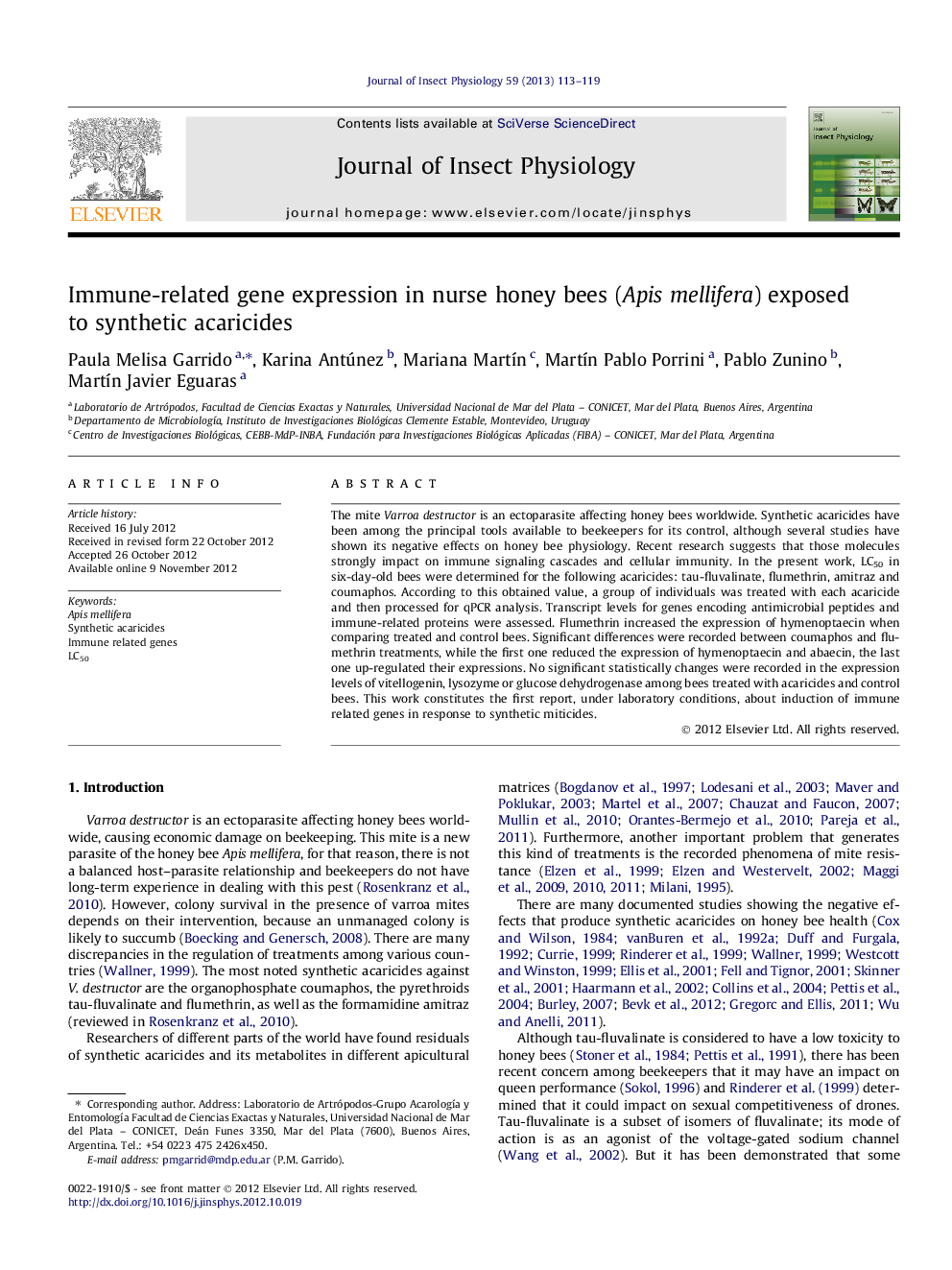| Article ID | Journal | Published Year | Pages | File Type |
|---|---|---|---|---|
| 5922053 | Journal of Insect Physiology | 2013 | 7 Pages |
The mite Varroa destructor is an ectoparasite affecting honey bees worldwide. Synthetic acaricides have been among the principal tools available to beekeepers for its control, although several studies have shown its negative effects on honey bee physiology. Recent research suggests that those molecules strongly impact on immune signaling cascades and cellular immunity. In the present work, LC50 in six-day-old bees were determined for the following acaricides: tau-fluvalinate, flumethrin, amitraz and coumaphos. According to this obtained value, a group of individuals was treated with each acaricide and then processed for qPCR analysis. Transcript levels for genes encoding antimicrobial peptides and immune-related proteins were assessed. Flumethrin increased the expression of hymenoptaecin when comparing treated and control bees. Significant differences were recorded between coumaphos and flumethrin treatments, while the first one reduced the expression of hymenoptaecin and abaecin, the last one up-regulated their expressions. No significant statistically changes were recorded in the expression levels of vitellogenin, lysozyme or glucose dehydrogenase among bees treated with acaricides and control bees. This work constitutes the first report, under laboratory conditions, about induction of immune related genes in response to synthetic miticides.
Graphical abstractDownload full-size imageHighlights⺠Flumethrin induced an up-regulation of hymenoptaecin. ⺠Opposite effects of coumaphos and flumethrin in ABA and HYM expression levels. ⺠No changes in vitellogenin, defensin or lysozyme expression. ⺠First report under laboratory conditions that relates acaricide effects on immunity.
